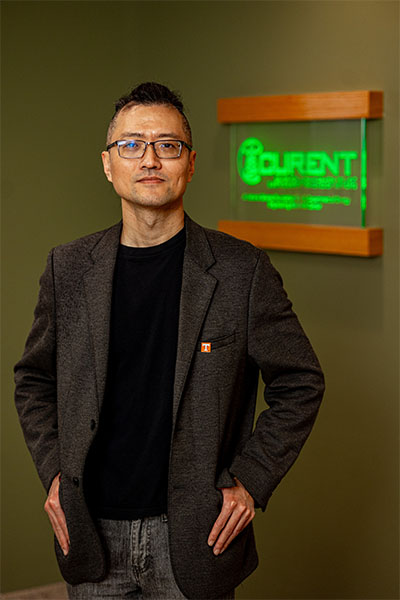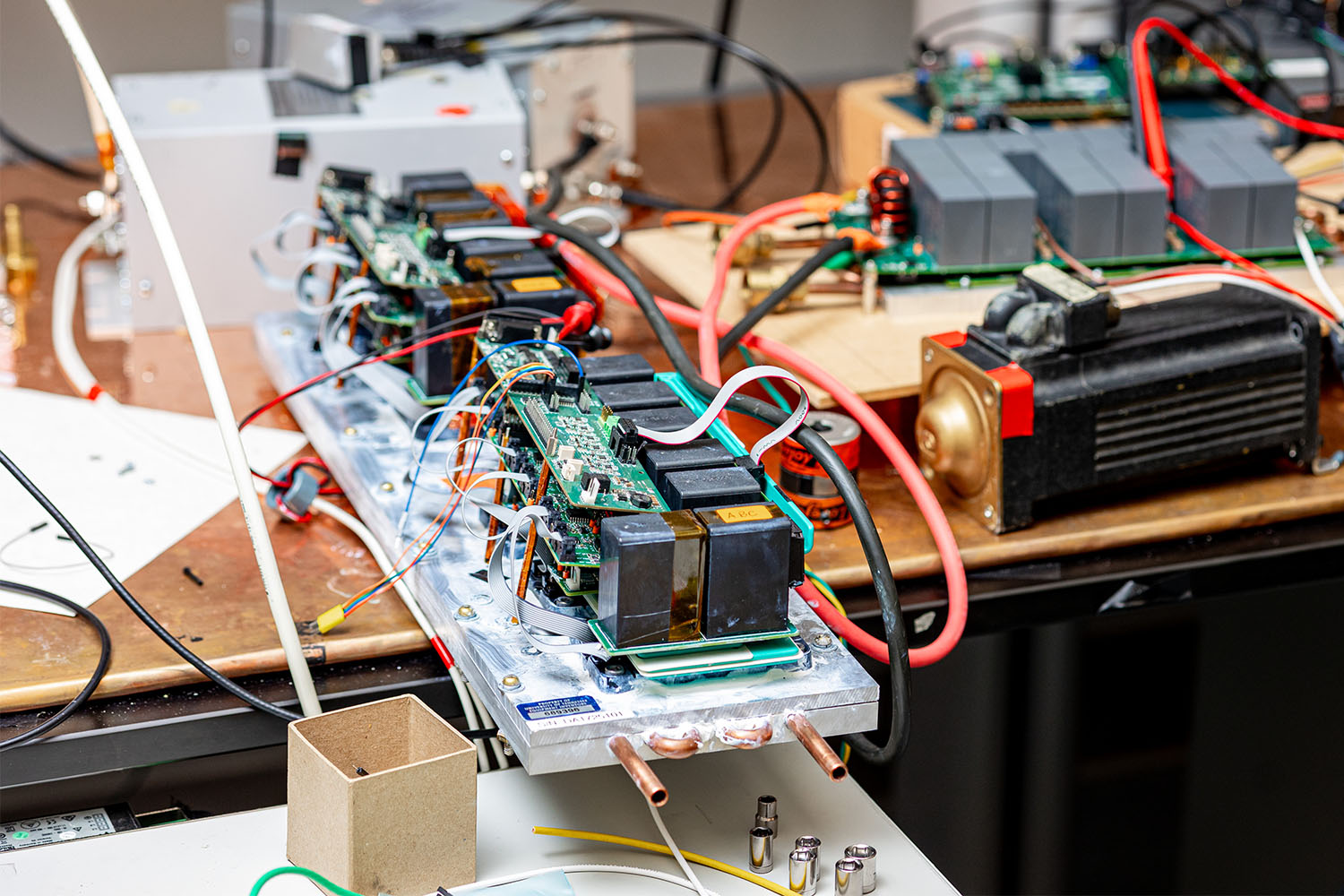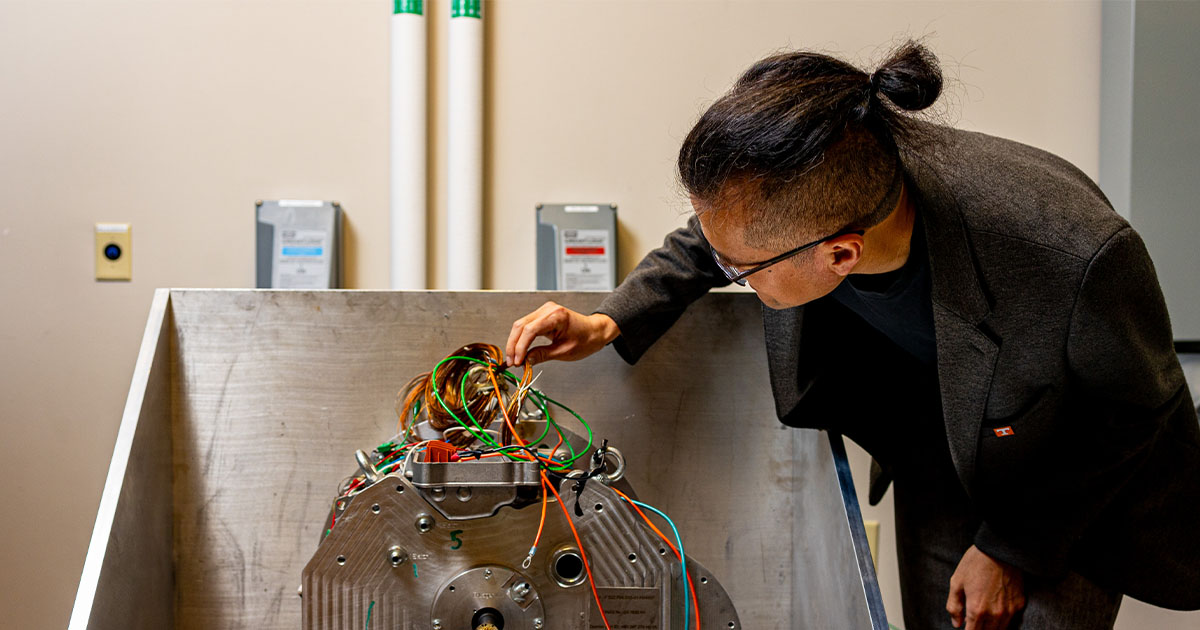By Rhiannon Potkey. Photography by Shawn Poynter.
Kevin Bai, associate professor in the Min H. Kao Department of Electrical Engineering and Computer Science, shares a principle-investigator role in a UT-led collaboration with the ABB Group’s US Research Center to develop an integrated compact drive inverter and motor for electric vehicles that would reduce both the size and cost of electric drive trains. The project is funded through a $5 million grant from the US Department of Energy’s Vehicle Technologies Office.

Bai’s proposed compact motor drive system would be used in electric passenger vehicles and medium-to-heavy duty trucks. This new design would reduce cost by significantly reducing the usage of rare earth permanent magnets.
“The system integration is also a major innovation,” said Bai. “Currently, the majority of inverters and motors are designed by different companies, which makes the EV OEMs difficult to integrate and optimize the overall system. By doing the integration together, we can let inverter and motor share the same enclosure or coolant, thereby reducing the size.”
Bai will work with co-PIs, both from EECS–Leon Tolbert, Chancellor’s Professor and interim department head, and Daniel Costinett, associate professor–to organize development at UT and with partner institutions to carry out the 39-month plan. Oak Ridge National Laboratory will help design the heatsink and provide the high-power dynamometer, Lucid Motors will provide system specs and design guidance, the University of Michigan–Dearborn will design the control system of the inverter, and Rensselaer Polytechnic Institute will design its integrated gate driver.

“In addition to the project management, my role is also to design, package and test the inverter at the UT side, then coordinate with other parties, particularly ABB on the system integration and test,” said Bai.
ABB is an industry member with UT’s Center for Ultra-Wide-Area Resilient Electric Energy Transmission Networks, collaborating on multiple projects, and Bai has strong ties at the partnering universities.
“They are the worldwide expert in motor design, which fits perfect in this project,” said Bai. “UM-Dearborn was my former employer; ORNL and RPI PIs all work with us on some ongoing projects. Lucid Motors are renowned EV companies which are aligned with my research interest.”
